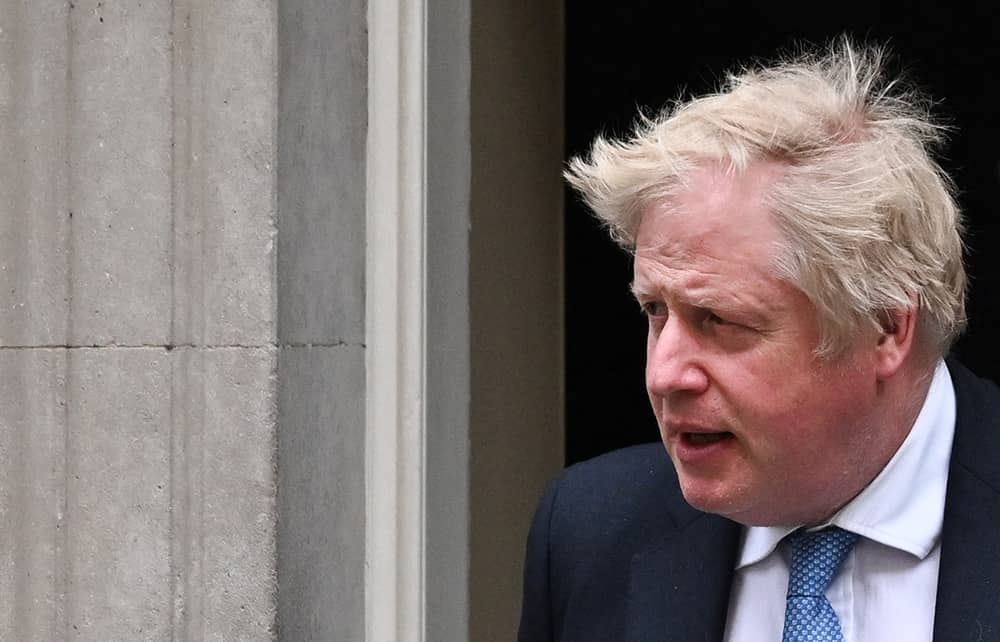Mid-term unpopularity is a given in British politics. Veterans from the Thatcher era like to joke that a government that isn’t behind at the halfway point of its term isn’t doing its job properly. But the worry for the Tories is that their current unpopularity is different.
The usual explanation for the mid-term blues is that a prime minister seeks to get the politically difficult stuff out of the way as soon as possible after an election victory. The government loses support initially before – if everything goes to plan – reaping the rewards of its tough decisions in time for the next general election. Straight after the Tories came into office in 2010, George Osborne hiked taxes and cut spending in his Budget. In 2012, he was booed at the Olympic Stadium and the Tories were consistently behind in the polls. But by 2015, real incomes were going up and the Tories won a surprise majority.
Nevertheless, because of Covid and the Johnson government’s lack of a clear governing prospectus, the Tories are not following the usual arc of the parliament. Rather than raising taxes right at the beginning, they have only just this month increased National Insurance. The last spending settlement, which included increases for all departments, is going to become less generous as this parliament goes on – and polling day nears – because of inflation.

Rishi Sunak’s announcement in the spring statement of a cut in income tax for 2024, just before the likely date of the next general election, is an attempt to make people feel a bit better off before polling day. But it remains to be seen whether the cut will have been in place long enough for people to really feel it before the campaign gets under way.
It is not just on fiscal matters that the government has strayed from the usual rhythm. Covid has effectively lopped a year of political time off the government’s term. The pandemic meant that plans to reform the UK’s unpredictable and sclerotic planning system were not introduced until after Johnson had already expended a considerable amount of political capital. In the end, No. 10, spooked by the prospect of a backbench revolt, dropped the idea. The remnants of planning reform will now be included in the coming levelling-up bill. But these limited changes are unlikely to make a significant economic difference.
The pandemic also caused a whole slew of backlogs that will take much of the rest of this parliament to fix. The most worrying of these for the government is the NHS: 6.2 million people are now on waiting lists in England, and that number continues to rise. The number of people waiting more than 12 hours in accident and emergency is the highest it has been since such records began in August 2010.
There is beginning to be a certain fatalism in Tory circles about how difficult the coming years will be
In the near term, it is hard to see where political relief will come from for the government. The Tories are already behind in the polls, even before the coming months which will see household incomes squeezed by rising prices. Then there will be a series of contentious public sector pay settlements, with the government keen to keep increases below inflation to avoid setting off a wage price spiral. To round it all off, there will be the problems that come from partygate, which Katy Balls writes about on page 12. Downing Street might be more politically aware now than it was when Dan Rosenfield, a former civil servant, was chief of staff, but one well-informed source warns that there is still ‘quite a lot of internal clashing going on’ in the building.
The International Monetary Fund now forecasts that the UK economy will grow by a mere 1.2 per cent next year and there is beginning to be a certain fatalism in Tory circles about how difficult the coming years will be. A cabinet minister and a pair of senior backbenchers have separately confided to me in the past week that they think the party might need to spend some time in opposition to map out a new agenda. When politicians start thinking like that, it can quickly become a self-fulfilling prophecy.
Set against this, though, is the fact that nearly every western country is experiencing similar economic challenges at the moment. The government will be able to point to external factors – Covid, Putin’s invasion of Ukraine, supply chain disruption caused by Chinese lockdowns – as reasons for the challenges people are facing. There are also reasons to think that the economy might turn around in time for a 2024 election; with the oil price this high, more and more US shale will become available which will, in time, bring down energy prices.
Downing Street is also moving to deal with some of its other political vulnerabilities. Its Rwanda plan is designed to show Tory and Leave voters – who regard immigration as one of the three most important issues facing the country – that it is taking the small boats issue seriously. There will almost inevitably be legal challenges to the policy, but there are those in government who think that being defeated in court would merely underline to their supporters their determination to deal with the issue in much the way that the prorogation judgment did with Brexit. As one secretary of state observes: ‘Boris has learned his lessons well from the whole Brexit period.’
Then there is also the fact that Keir Starmer and Labour have far from sealed the deal with the electorate. Starmer has dealt with many of the party’s weaknesses. His approach to the Ukraine crisis shows how different he is on national security from Jeremy Corbyn and his blame-the-West-first approach, but it would be a struggle to say what his Labour party actually stands for.
In electoral terms, however, this might not matter much if the Tories continue to make mistakes. In British politics, governments tend to lose elections more than oppositions win them. But if the Tories can stop the next election from turning into a referendum on their record, then the absence of a compelling proposition from Labour will matter more.
Boris Johnson is happiest being an optimist. He likes to be the politician who declares that everything is getting better. That is going to be extremely difficult for him over the coming months. He faces a long hard summer.







Comments